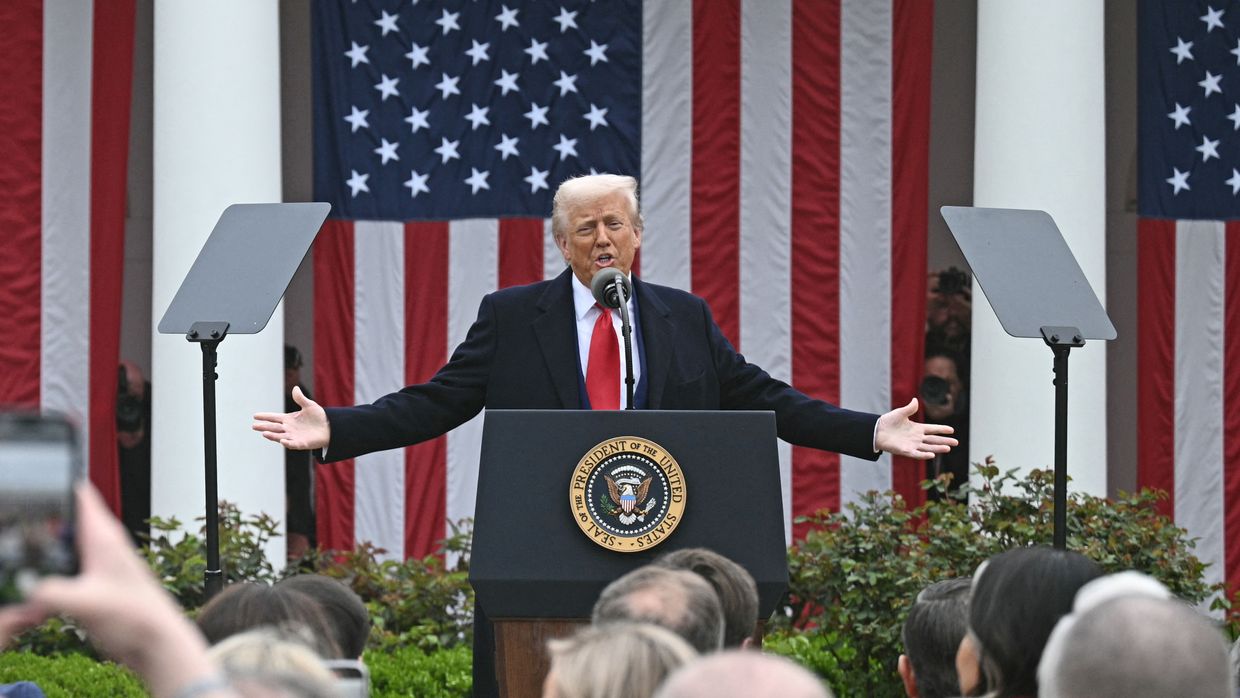Trump's tariffs may hit US defense production including F-35 fighter jet, air defense projects, Politico reports

Tariffs imposed by U.S. President Donald Trump could seriously hit the U.S. defense industry, complicating international cooperation and increasing the cost of manufacturing military equipment, Politico reported on April 4.
Trump unveiled a sweeping list of "reciprocial tariffs" on April 2, imposing a baseline 10% duty on all countries — including Ukraine — with even higher rates for major trade partners like the EU.
Russia and Belarus were not included on the list.
The tariffs could undermine international defense cooperation by jeopardizing joint military projects, including producing the F-35 fighter jet, air defense systems, and constructing nuclear submarines.
"There's going to be shortages of supplies, tit-for-tats, and our allies and other partners are going to retaliate," said Bill Greenwalt, a former Pentagon acquisition official told Politico.
"Some potentially vital supplies are either going to cost a whole heck of a lot more than what they did, or they're just not going to be available," he added.
The Pentagon has spent decades building, financing, and developing a global network of suppliers and companies many of which are now facing tariffs.
Without defense exemptions, the administration could negate much of that work, delaying the production of U.S.-made weapons for the country and other buyers.
"We count on the U.S. for the best equipment," a European official said. "European industrial capacity has greatly improved, and we want to be security providers, not just consumers."
This means investing more in European production to reduce dependence on American spare parts and materials for weapons, the official added.
Senator Mark Kelly, a senior Senate Armed Services member whose state won more than $14.5 billion in U.S. Defense Department contracts last year, highlighted the complexity of defense production and noted that due to the new tariffs, the products of the U.S. military industry may repeatedly be subject to duties during the production process.
"The prices are going to go up, and the prices that DOD (U.S. Defense Department) has to pay are going to go up," Kelly said. "Our defense budget, if we want to maintain the same type of force, will get more expensive."
Earlier, Economy Minister Yuliia Svyrydenko said that the Trump administration's latest tariffs are likely to be "difficult, but not critical" for Ukraine's economy.
Ukraine's exports to the U.S. in 2024 amounted to $874 million, including $363 million in cast iron and $112 million in pipes, Svyrydenko said on Facebook. The same year, Ukraine imported $3.4 billion worth of U.S. goods.












